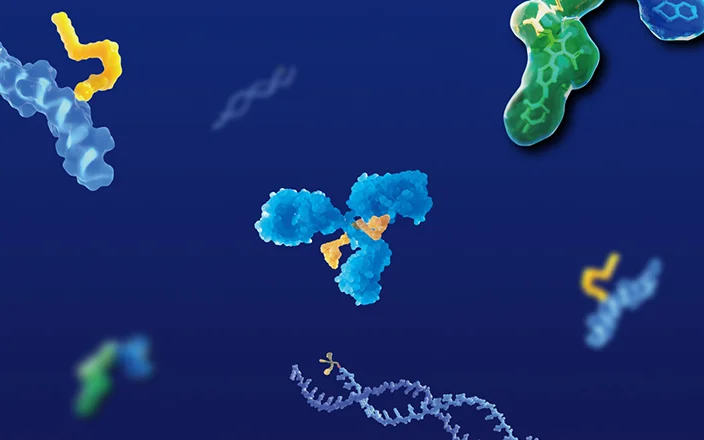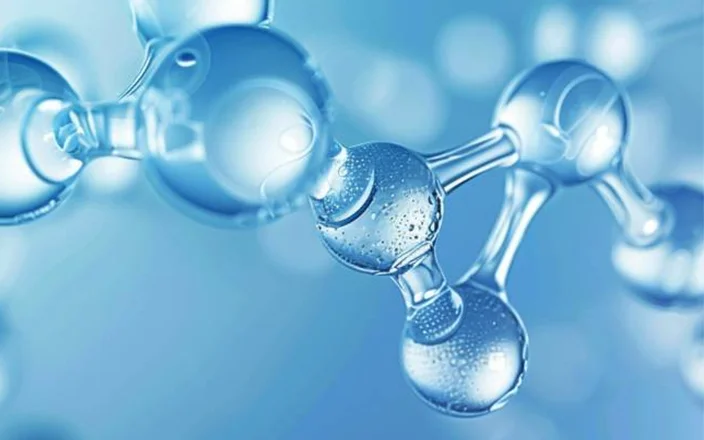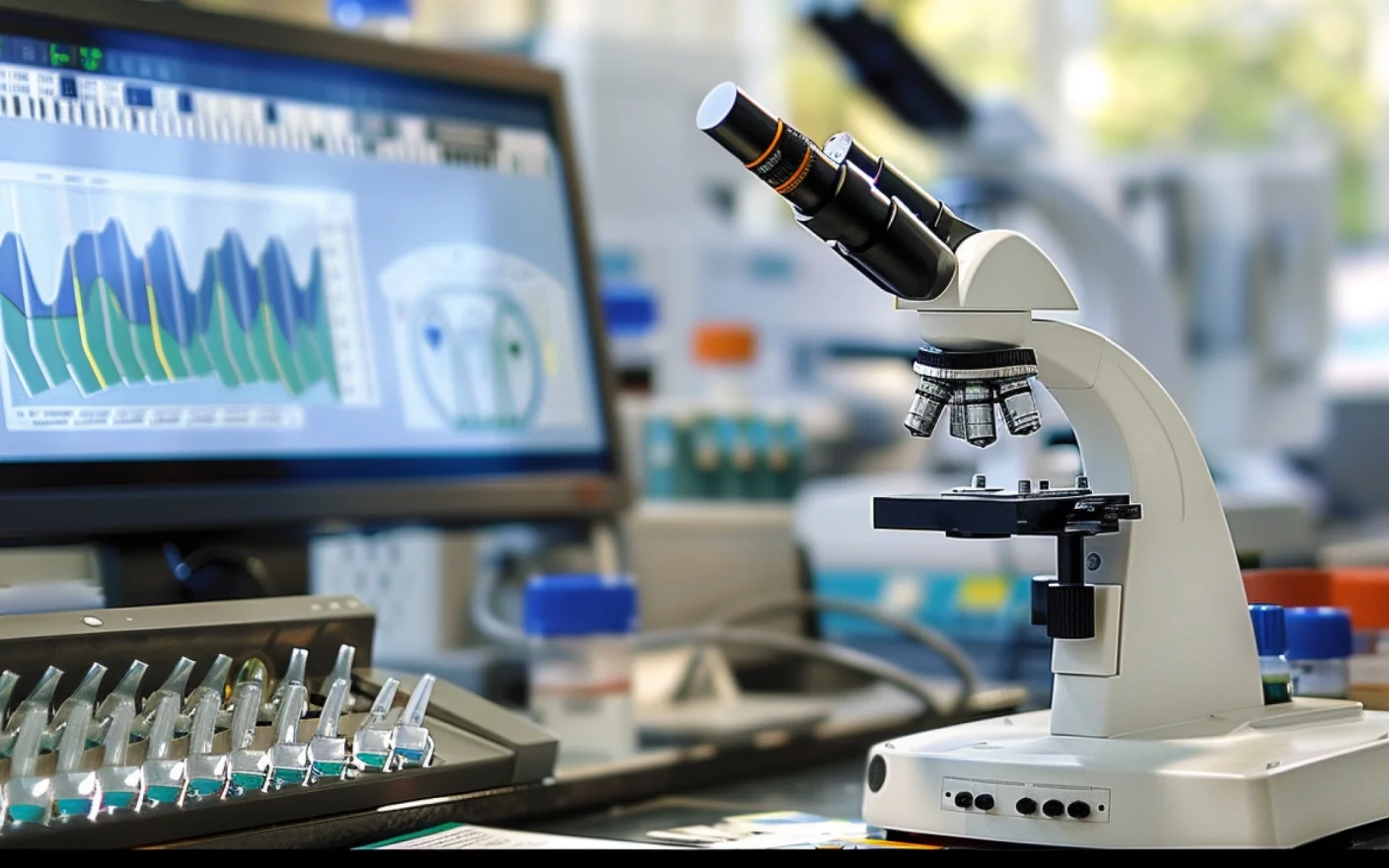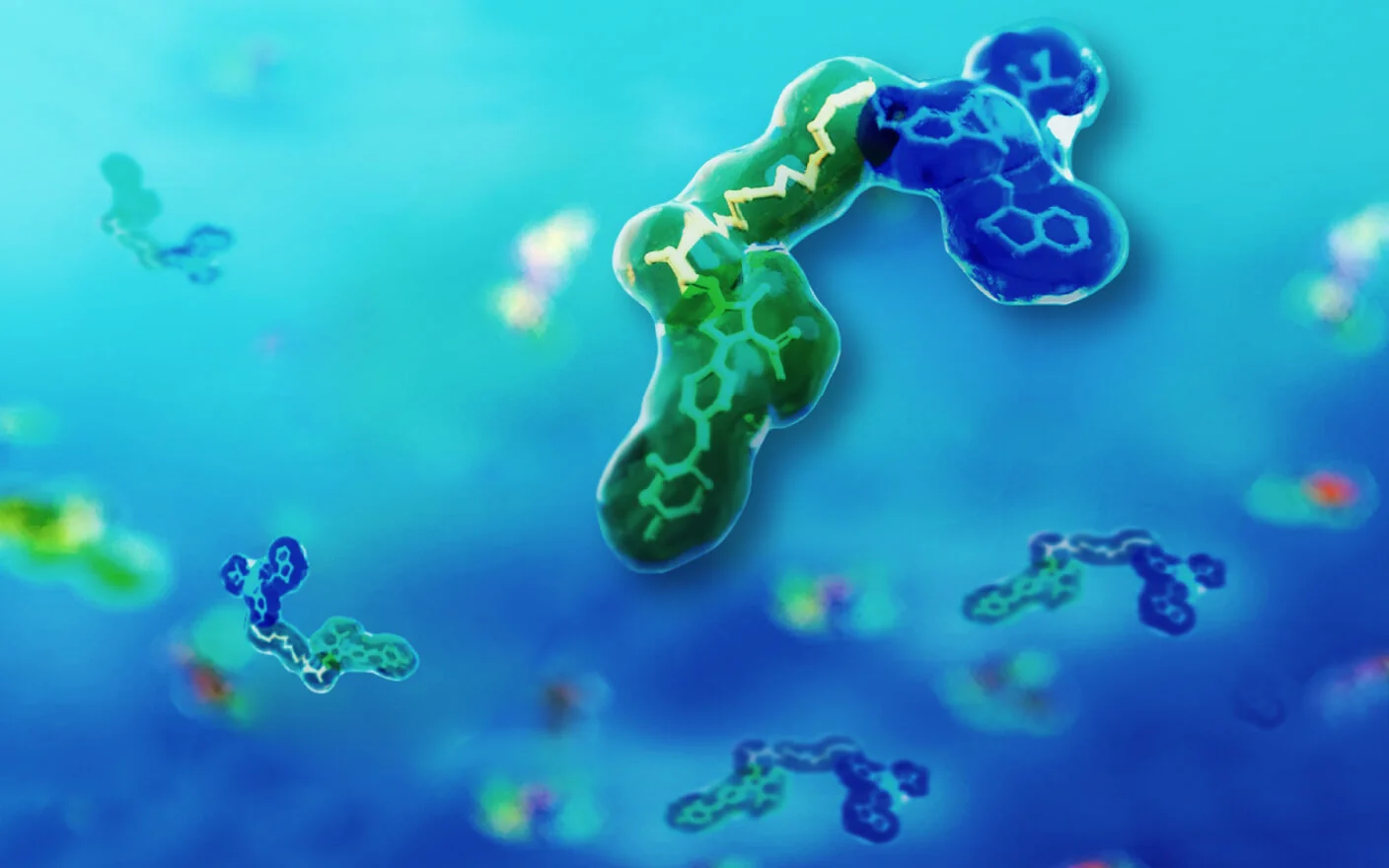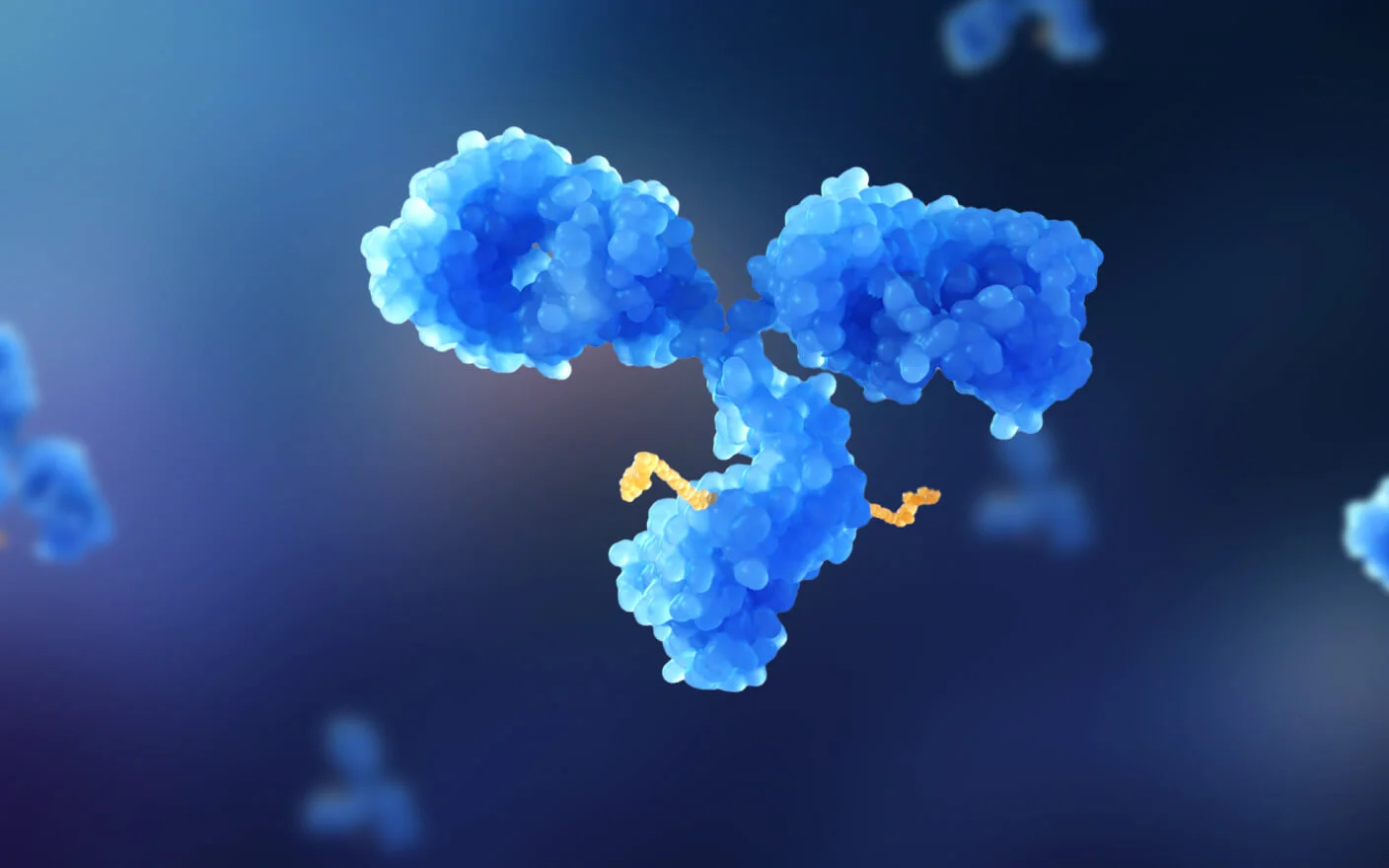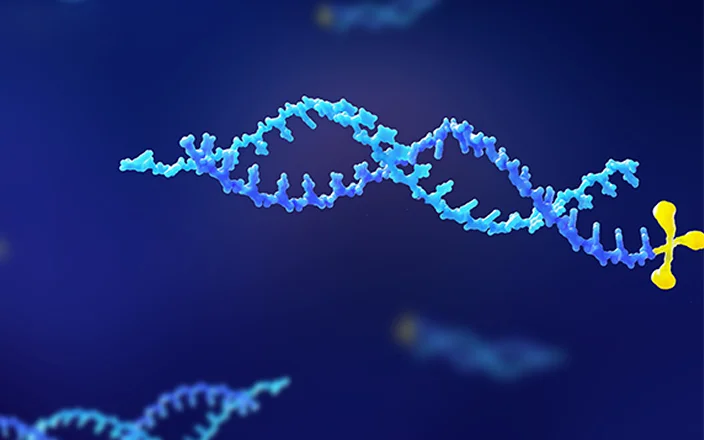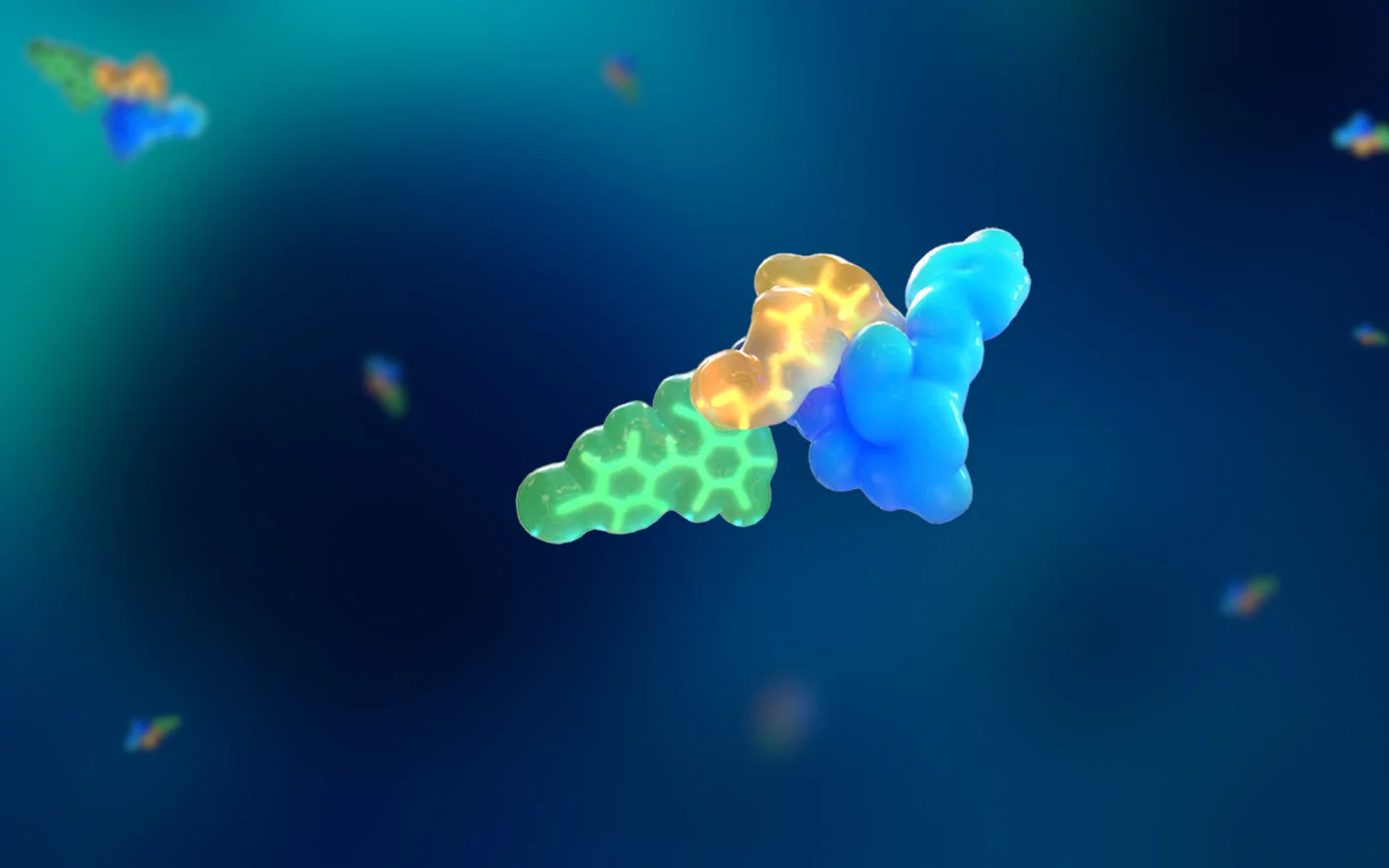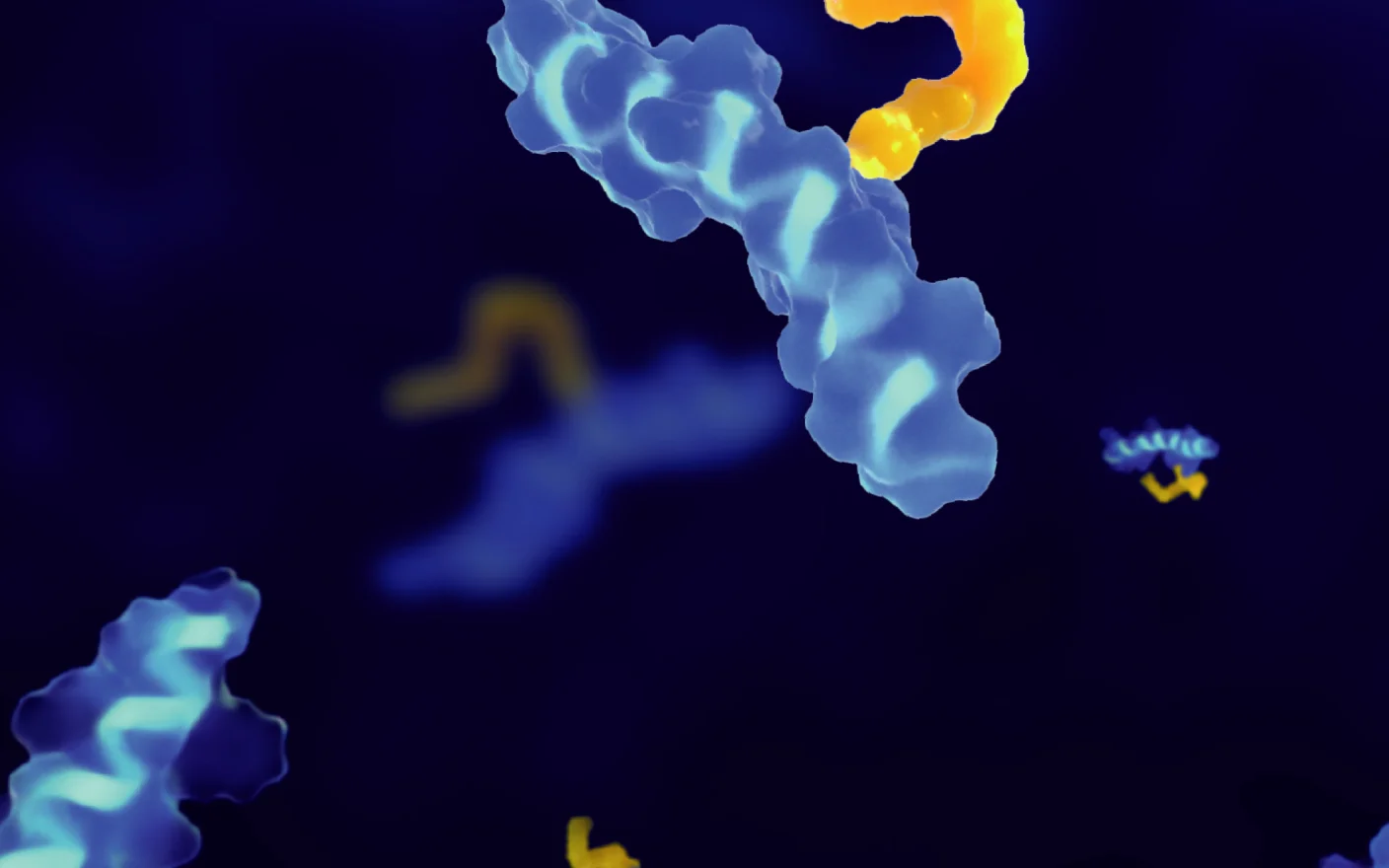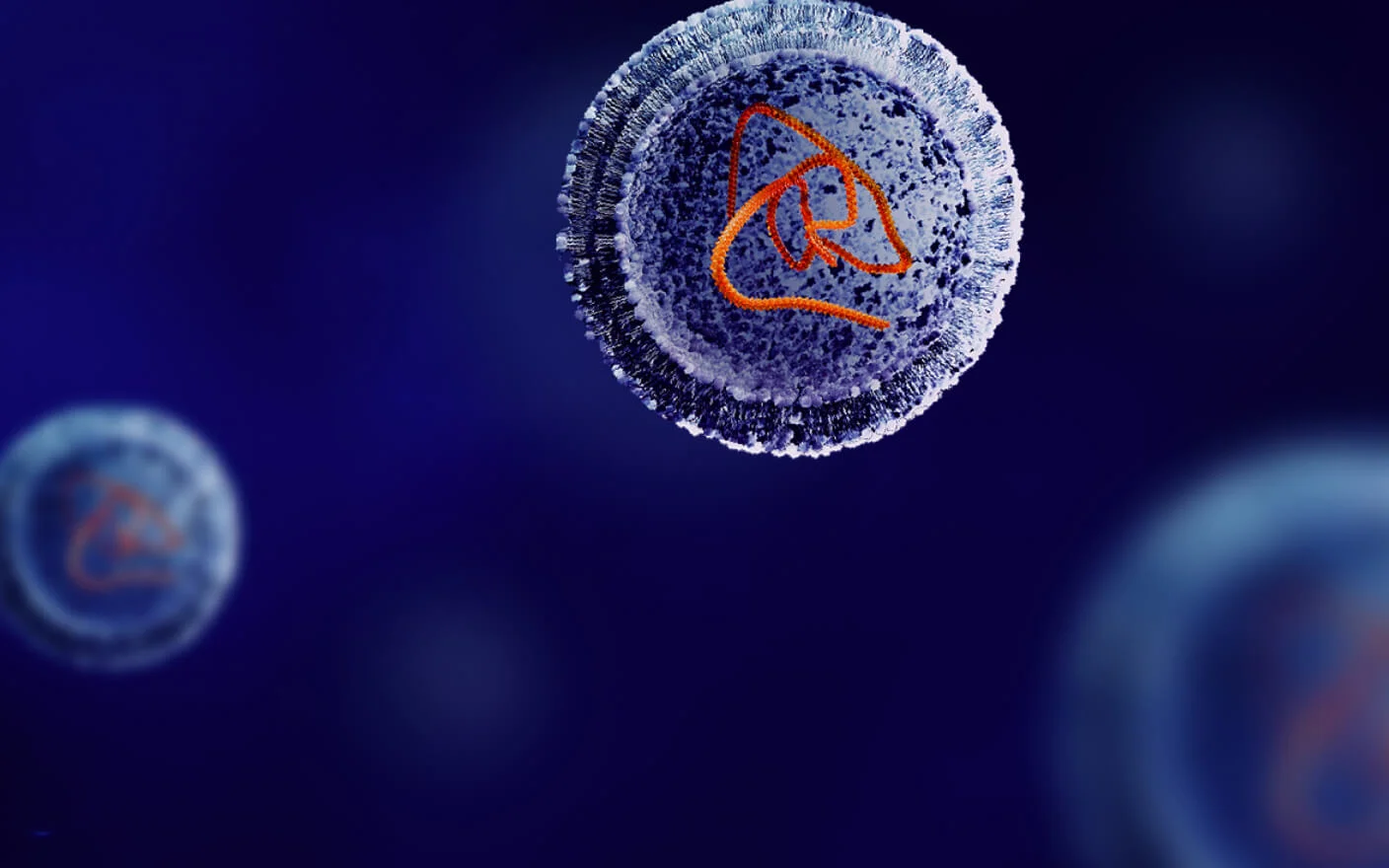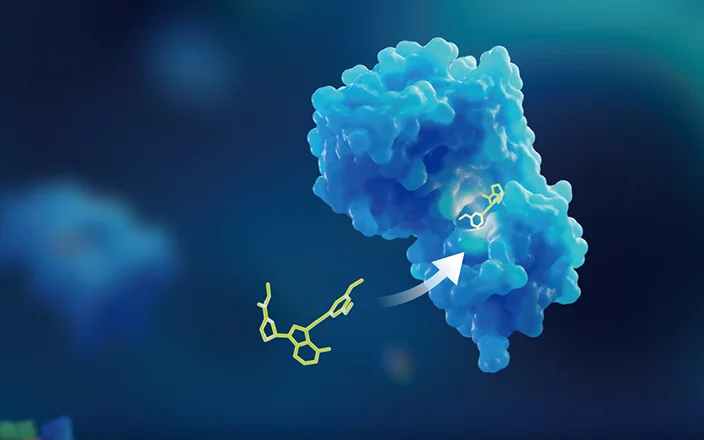Antibody-drug conjugates (ADCs) are an exciting therapeutic modality that can target and destroy cancer cells like few other therapies. At present, 16 ADC drugs have been marketed globally, including 15 FDA-approved and one NMPA-approved ADC. However, despite its advantages, the intricate structure of ADCs—which includes a monoclonal antibody, a cytotoxic payload, and a chemical linker—makes them difficult to investigate. To address the challenges, preclinical researchers need a better approach.
On April 24, 2024, Dr. Maotian Zhou from WuXi AppTec DMPK presented the topic of “Facilitating ADC Preclinical DMPK Research with An Integrated Bioanalysis Platform” in the AAPS (American Association of Pharmaceutical Scientists) eChalk Talk. In this webinar, we explored an integrated platform for preclinical DMPK bioanalysis of ADCs and how it can help characterize the pharmacokinetic (PK) profile of each of an ADC drug’s structural components. The platform incorporates a number of different testing strategies—ligand-binding assays (LBAs), liquid chromatography-mass spectrometry (LC/MS), hybrid LBA-LC/MS bioanalysis—and is divided into six parts: total antibody, conjugated antibody (ADC), free payload, metabolite identification (MetID) and major metabolites, immunogenicity, and the drug antibody ratio (DAR) evaluation. This blog summarizes some high-frequency questions to provide feedback on the audience's support for this webinar.

Q1. Have you seen any differences in ADC stability between plasma and serum collections?
A: Generally, we did not see much difference in ADC stability between serum and plasma matrix. To be noticed that we use heparin as anticoagulant for the plasma. If using EDTA as anticoagulant, the result may be different.
Q2. Could you please describe how to do the signal bridge testing to establish a DAR non-sensitive method?
A: Generally, we use signal bridge for the total antibody method. The ADC will be used to prepare the standard curve and QC, and the naked antibody will be used to prepare another set of QC. If the naked antibody back calculated concentration could match with the nominal concentration (within 20% bias), the signal bridge passed, and indicate it is a DAR non-sensitive method.
Q3. What is the sensitivity of the General Hybrid LBA-LCHRMS workflow?
A: For the hybrid LBA-LC/HRMS workflow for intact ADC analysis. Especially for the DAR evaluation purpose of ADC. Limited by the ionization efficiency for the high-mass protein, the sensitivity is generally not comparable to the small molecular. The sensitivity is generally higher than 1ug/mL.
Q4. Which bioanalytical assay acceptance criteria are typically handled for all the ADC components (A&P 15 or 20%) for the validated assays?
A: Reference the FDA bioanalysis method validation guidance, for the LC/MS platform the A&P acceptance is 20/15% for LLOQ, ULOQ, and other points. For the LBA platform, the A&P acceptance is 25/20% for LLOQ, ULOQ, and other points. For the hybrid LBA-LC/MS platform, the A&P acceptance will reference the LBA platform.
Q5. Are QWBA and/or radiolabeled-ADME studies often conducted for ADC in your experience?
A: The QWBA or radiolabeled ADME is a powerful tool for the biodistribution evaluation of the ADC, compared with the traditional way, it has many advantages and been recommended by the NMPA guidance. But because of the isotope labeling difficulty and high price, not many projects apply the QWBA approach, especially for the ADC which uses a well-established linker-payload.
For more details, please click here to watch the webinar recording. If you have any other questions, please feel free to talk to a WuXi AppTec expert or send an email to DMPK_Service@wuxiapptec.com.
Committed to accelerating drug discovery and development, we offer a full range of discovery screening, preclinical development, clinical drug metabolism, and pharmacokinetic (DMPK) platforms and services. With research facilities in the United States (New Jersey) and China (Shanghai, Suzhou, Nanjing, and Nantong), 1,000+ scientists, and over fifteen years of experience in Investigational New Drug (IND) application, our DMPK team at WuXi AppTec are serving 1,500+ global clients, and have successfully supported 1,200+ IND applications.
Related Services and Platforms




-

 DMPK BioanalysisLearn More
DMPK BioanalysisLearn More -

 Novel Drug Modalities DMPK Enabling PlatformsLearn More
Novel Drug Modalities DMPK Enabling PlatformsLearn More -

 Novel Drug Modalities BioanalysisLearn More
Novel Drug Modalities BioanalysisLearn More -

 Small Molecules BioanalysisLearn More
Small Molecules BioanalysisLearn More -

 Bioanalytical Instrument PlatformLearn More
Bioanalytical Instrument PlatformLearn More -

 PROTAC DMPK ServicesLearn More
PROTAC DMPK ServicesLearn More -

 ADC DMPK ServicesLearn More
ADC DMPK ServicesLearn More -

 Oligo DMPK ServicesLearn More
Oligo DMPK ServicesLearn More -

 PDC DMPK ServicesLearn More
PDC DMPK ServicesLearn More -

 Peptide DMPK ServicesLearn More
Peptide DMPK ServicesLearn More -

 mRNA DMPK ServicesLearn More
mRNA DMPK ServicesLearn More -

 Covalent Drugs DMPK ServicesLearn More
Covalent Drugs DMPK ServicesLearn More
Stay Connected
Keep up with the latest news and insights.




